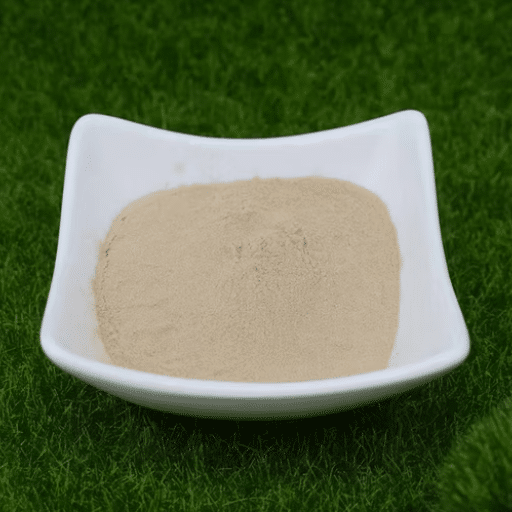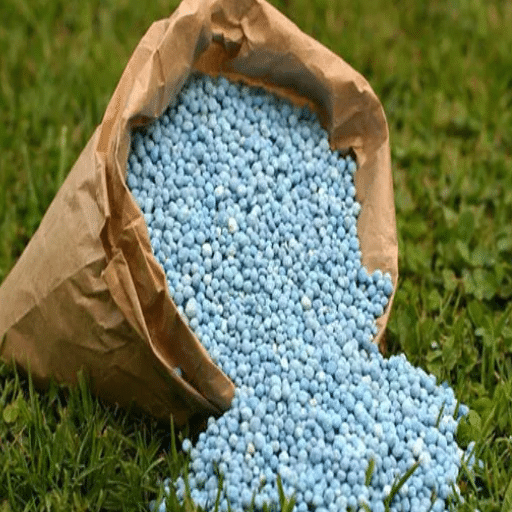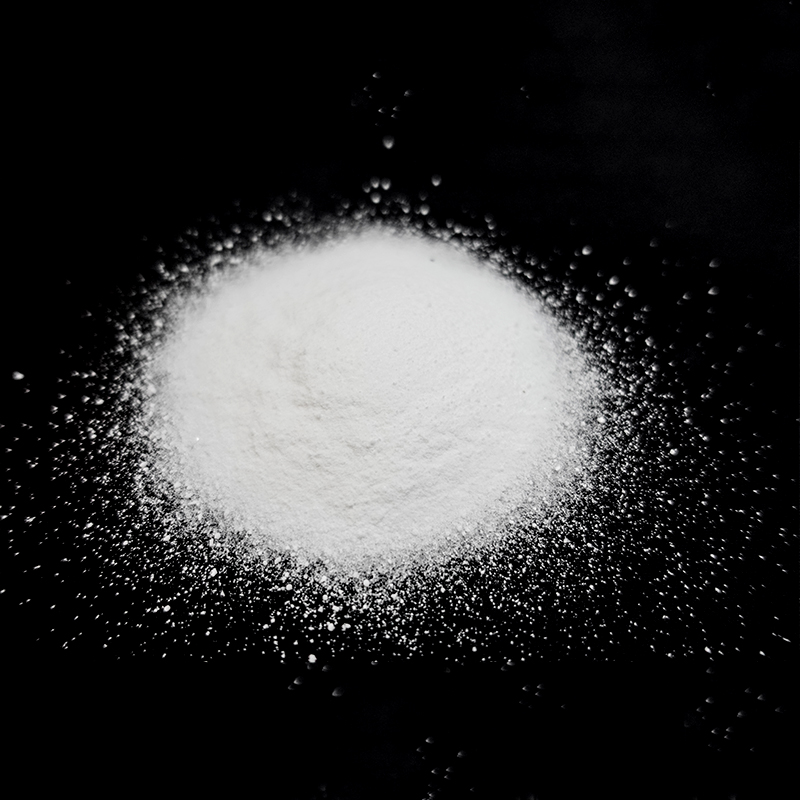Introduction to Organic Zinc Fertilizers
Organic zinc fertilizer is an important micronutrient for present day agriculture. Plants use zinc as an essential plant nutrient playing an important role in their growth, development and final yields. Zinc is an essential element for over 300 enzymes and proteins and acts as either a catalyst or an essential part of those enzymes and proteins. It has an important role in the production of plant growth hormones, transcription factors and regulatory proteins.
Significance of using organic sources all along is its sustainability in nature. fertilizers will be from organic source including zinc which not just provides all the essential nutrients to plants but also develops the health and biodiversity of soil, a clarification given by Helen S Thompson PhD, award-winning agronomist in the field of micronutrients: ‘Organic zinc fertilizer is critical for promoting more balanced nutrient uptake by plants, yield and agro-ecosystem resilience to environmental stress.’ This promotes the way we grow our food being a sustainable growth because reliance on synthetic inputs may reduce in such sustainable way and this will make our environment healthy.
Because organic zinc fertilizer is transferred to the plant via the soil, if applied in agriculture, the plant can have access to the mineral zinc that is often deficient in many soils around the world, especially in cereal-rich and meat-poor regions, where zinc deficiency is most prevalent. This introduction lays a foundation for explaining how organic zinc fertilizer can enhance both plant health and yield, and also help to make agriculture more sustainable.
Key Benefits of Using Organic Zinc Fertilizers
Why is organic zinc fertilizer used to fertilise crops? What benefits does it add to the growth and yield of crops? The organic zinc fertilizer will surely improve the growth and yield of crops. Crucially, the organic zinc fertilizer will increase the crop growth and yields. Zinc is one of the micronutrients for crops. By adding zinc in cultivating, the contents of chlorophyll, protein and other growth hormones in crops can be promoted, so that plants growing faster and higher yields. Various researches have proved that the yield of crops would increase 20–30% compared with the conventional fertilisation by adding zinc.
Since it also encourages more plentiful plant growth, organic zinc fertilizer provides a double bang for the buck. By increasing the number of desirable microbes in the soil, zinc fertilizer also feeds into the biological fertility of the earth, promoting nutrient cycling and organic matter decomposition. ‘Organic zinc fertilizers not only deliver micronutrients but they also help maintain soil organic matter, which is the core basis for soil structure and fertility,’ says Emily Ford, a soil scientist.
Another key benefit is greater resistance to diseases and pests. Zinc plants have stronger cell walls and greater activity of enzymes that are involved in the production of plant defence proteins. Such well-zinc-fed plants are better able to withstand the ravages of pathogens and pests. ‘Sufficient zinc nutrition can reduce the incidence of diseases such as blight in tomatoes or rust in wheat by enhancing the systemic resistance mechanisms of plants,’ says the agricultural scientist Dr John Beckett.
In short, organic zinc fertilizer needs to be applied in a strategic, yet timely, manner to maximise agricultural output sustainably by ensuring both the nutritive health of plants and their yields, while additionally maintaining fertility of soils and boosting plant immunity. Therefore, it could be said that zinc fertilizers could be the key in making agriculture sustainable.

Different Types of Organic Zinc Fertilizers
Several types of organic zinc fertilizers are currently sold to farmers and gardeners. They can widely be distinguished for the conditions of application (soil) and mode of application (to crops). This article attempts to shed light on the different kinds of organic zinc fertilizers. This should help farmers and gardeners vet and choose the most effective form of zinc enrichment for their agricultural practice.
Zinc sulfate (monohydrate), often in a formulation with zinc oxide, is also widely used as a fertilizer. It is a very water-soluble form of zinc, an advantage for fertilizer application where zinc uptake should be immediate, to rapidly supply the plant with zinc. It is applied to the soil or as a foliar spray as an effective treatment for immediate relief of zinc deficiency.
A second popular form is zinc oxide, which is less readily soluble than zinc sulfate and a longer-lasting source of zinc. It works well in soils with plenty of water-holding capacity (so that the immediate reapplication of a soluble zinc source is less crucial). The slow release of zinc is useful because it might be available months later, rendering the urgent need for reapplication unnecessary.
Chelated zinc forms, such as zinc EDTA (ethylenediaminetetraacetic acid) are several levels up. They are bonded to a chelating compound (chelat: claw, chele: claw) which wraps tightly around the zinc, protecting it from interactions with other soil components and so rendering it more available for uptake by plants. Chelated zinc is particularly useful in calcareous (alkaline) soils in which zinc is often less available due to its precipitation.
In the words of the plant nutritionist Dr Oliver Graham: ‘[C]helated organic zinc fertilizers… greatly minimise the fixation of zinc by soil particles, thereby increasing its availability to plants’.
Each of these types of organic zinc fertilizer contributes distinct advantages, and can be chosen depending on particular features of the soil and the needs of the crop. Knowledge of the options can therefore enable more precise and productive zinc supplementation to boost crop health and optimise yields.
Application Guidelines for Organic Zinc Fertilizers
Applying organic zinc fertilizer properly is a key component to harnessing its beneifts for crops. Following recommended application rates at the proper time for plant absorption and utilisation ensures that the proper amount of zinc is delivered to plants at the correct time.
This depends on crop, soil condition and soil preexisting zinc levels. A soil test should be used to determine zinc deficiency levels and adjust the fertilisation program accordingly. For most crops, the application rate is recommended to be in the 5 to 10 kg per hectare range. For foliar applications, this will drop to the 0.5 to 1 kg per hectare range due to the higher absorption efficiency.
The best time for soil applications depends on geographic location and season but, generally, it is recommended for zinc fertilizers to be surface-applied at the time of seeding or soon into the growing season to be available when plants need it. Zinc can be applied directly to the soil (top-dressed) or incorporated early into the season with tillage operations and mixed with the soil to achieve good distribution and reduce runoff losses.
Foliar applications are when the zinc solution is sprayed on to the plant leaves This form of application is especially advisable if you want to stimulate immediate zinc supplementation. For example, when a plant is in a period of peak growth and, thus, its require ment for micronutrients increases. Lisa Hartley advises applying organic zinc fertilizer foliarly in the early morning or late afternoon: This will allow your plants to soak up maximum nutrients and reduce any potential for evaporation.
Timing and frequency are also important considerations. For instance, zinc fertilizer should be applied when plants are at early developmental stages to maximise zinc uptake. Ongoing applications might also be required later on, if symptoms of zinc deficiency begin to appear or if it becomes apparent that the soil remains deficient.
Overall, farmers can optimise OZF ferterilsation rates by applying fertilizer following recommended rates, best practice application methods and at the right time. This will ensure that crops have enough Zn supply while they are growing to produce better enquiry and health.

Challenges and Considerations in Using Organic Zinc Fertilizers
Although use of organic zinc fertilizers presents many benefits, there are associated challenges and impediments that need to be managed to optimise the benefits and mitigate any potential negative effects.
Because of its reactivity, the availability of zinc in the soil depends to a large extent on soil pH. As the pH of the soil increases (because of the addition of lime, for example), zinc becomes less available to plants as it tends to combine with other substances to form insoluble compounds. ‘Maintaining a pH of 6.0 to 6.5 would greatly increase the chances of the plant’s roots absorbing zinc because it keeps zinc in forms that it can absorb,’ says Mark Benson, a soil scientist at Cornell University, New York, US.
To increase soil pH, liming agents may be applied to the soil, or, if the starting soil conditions require it, sulphur may be added to decrease pH. Soil testing should be performed on a regular basis so that pH can be monitored and management strategies can be adjusted to keep zinc bioavailable to crops.
Increasing zinc availability in soil can interact with other nutrients and soil amendments in more subtle ways, causing reductions in zinc uptake by plants. Phosphorus systems often show strong inhibitive effects against zinc uptake – a process whereby phosphorus mobilisation leads to decreased zinc availability for plant uptake. This phenomenon manifests as an unexpected zinc deficiency in agricultural fields; growers are surprised to encounter specific symptoms of zinc deficiency while soil-testing data shows adequate to high zinc levels.
As an example, one recent field study in Chilean coastal forests identified numerous areas with evident zinc deficiency symptoms but where soil-test zinc levels were high. When considering nutrient soil management plans, these phenomena must be taken into account.
In addition, compatibility issues can exist around the use of specific organic amendments such as manures or composts that can in turn alter soil pH or have interactions with zinc that can increase or decrease its potential availability. Working with agronomy specialists can be helpful in developing holistic nutrient management plans accounting for these interactions and their implications for crop nutrition.
Managing these challenges in advance requires that you understand soil chemistry, nutrient interactions and crop requirements. Once you understand these parameters, the organic zinc fertilizers would deliver the foundations to help farmers sustainably and intelligently contribute to the agricultural and public health.
Conclusion
The introduction of organic zinc fertilizer is essential for agriculture with a sustainable future where it provides numerous important advantages that can improve crop productivity, soil health and plant resistance to diseases and pests. As the research approaches, it attracts more and more growing trends in the integration of zinc fertilizers, aiming to further increase the efficiency of zinc applications and optimise environmental effects.
Researchers working on developing organic compounds that function as zinc fertilizer will continue to look towards producing even more efficient forms of zinc and improving application technologies to reduce losses and increase uptake. Innovations such as nano-fertilizers already promise more controlled release of nutrients and more tailored application rates. We are well-positioned to minimise environmental footprints and improve the effectiveness of zinc fertilisation. There could not be a better time to make this happen.
In short, while the application of organic zinc fertilizers brings its own hurdles, related to pH and interactions with other nutrients, several of which remain difficult to control in the field, the benefits are hard to ignore. Further refinement of application methods as well as understanding of soil-nutrient dynamics will allow farmers to ensure that widespread use of zinc fertilizers continues to stimulate production and reap multiple benefits for a more sustainable and food-secure world.
Here are some scholarly references on organic zinc fertilizer :
- Organo Zinc Chelates for Improving Yield and Zinc Efficiency – This study discusses the impact of zinc efficiency and its essential role in overcoming abiotic stress in crops.
- Foliar Zinc Fertilization – This article explores foliar application of zinc and its effects on yield, biofortification, and nutrient absorption in rice.
- Bio-Organic Mineral Fertilizer for Sustainable Agriculture – This research emphasizes the long-term benefits of bio-organic fertilizers for soil health and plant growth.
- Interactive Effects of Drought, Organic Fertilizer, and Zinc Oxide – This study on ScienceDirect assesses how organic fertilizer combined with zinc oxide can improve drought resilience and Zn uptake.
- Agronomic Effectiveness of Zinc Sources as Micronutrient Fertilizer – This research evaluates different zinc sources and their effectiveness as micronutrient fertilizers.







